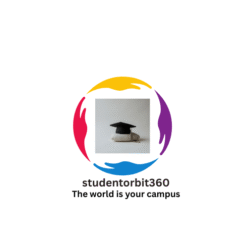Studying abroad is a dream for thousands of students from South Asia, Southeast Asia, and Africa. But in 2025, the competition is tougher, visa scrutiny is stricter, and application processes are evolving fast. A single mistake in your university application can cost you months—or even your admission. Here’s a detailed guide on the top mistakes students make when applying to universities abroad and how you can avoid them.
1. Missing Application Deadlines
Each country and university has its own deadlines, and they can be confusing. For example:
- UK: UCAS deadline for most courses is usually in January.
- USA: Fall intake deadlines range from November to February.
- Germany & France: Often follow a winter and summer semester system with January and July deadlines.
- Canada & Australia: May have multiple intakes, but popular ones close by February or March.
✅ Tip: Create a spreadsheet with deadlines by country and course. Set calendar reminders weeks in advance.
2. Not Meeting Academic or Language Requirements
Many students apply without checking the minimum GPA, English proficiency (IELTS/TOEFL), or course prerequisites.
- Example: Applying to a Master’s in Computer Science in Germany without a strong math background.
- Common error: Assuming that “medium of instruction in English” is enough for countries like the UK or Canada—it’s not.
✅ Tip: Always check entry requirements on the university’s official site. If you’re unsure, email the admissions team.
3. Submitting a Weak Statement of Purpose (SOP)
A generic or poorly written SOP can ruin your chances—even with a good academic profile.
- Common issues: Using templates, copying others, not tailoring to the specific university.
- Lacking clarity on career goals or why you chose the country/university.
✅ Tip: Write your SOP in your own voice. Be clear, concise, and specific. Always get it reviewed by a mentor or professional.
4. Ignoring Scholarships or Financial Aid
Many students assume they won’t qualify or apply too late.
- Deadlines for scholarships are often earlier than regular admissions.
- Some great options for 2025 include:
- DAAD (Germany)
- Chevening (UK)
- Fulbright (USA)
- Eiffel (France)
- Government of Italy scholarships
- Hungarian Stipendium Hungaricum
✅ Tip: Start researching scholarships at least 6–8 months before your intake.
5. Not Having Certified Documents or Incorrect Translations
Universities abroad often ask for:
- Certified transcripts
- Verified degree certificates
- Translations (done by certified translators)
✅ Tip: Ensure your documents are certified, scanned properly, and uploaded in the format universities accept (PDF is usually preferred).
6. Choosing the Wrong Course or University
Students often apply based on rankings or peer pressure, not their own interests or career goals.
✅ Tip: Research job prospects, course content, and cost of living. For example:
- Sweden & Germany offer tech-heavy programs with strong post-study options.
- Poland & Hungary are great for medicine and engineering at a lower cost.
7. Underestimating the Importance of Visa SOP / Financial Proofs
In 2025, visa officers are rejecting applications where financial documents or visa SOPs look weak or inconsistent.
✅ Tip: Always prepare a strong visa SOP, showing clear intent to study and return, financial stability, and course relevance.
Final Words
Avoiding these common mistakes could make all the difference between a rejection and an acceptance letter. In 2025, university applications are becoming more competitive, so take the time to prepare a strong, complete, and timely application.



